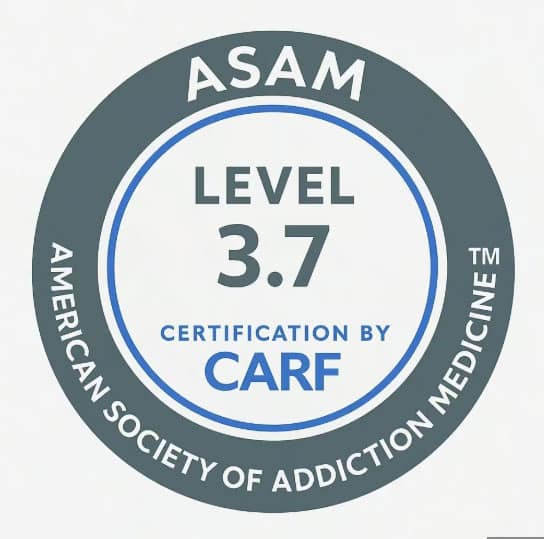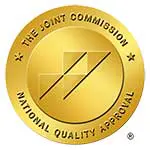Speak to an Admissions Specialist Today!
Call us at (888)-680-1356 or fill out a confidential form.
Is it better to go to rehab in Los Angeles or out of state? This article compares both options to help you decide. We’ll look at factors like support networks, costs, and treatment methods so you can make the best choice for your recovery.
Key Takeaways
- In-state rehab in Los Angeles offers a supportive local environment and a variety of tailored treatment options, which can enhance recovery success.
- Out-of-state rehab can provide a fresh start in a new environment, potentially reducing triggers and increasing detox effectiveness by up to 20%.
- Key factors influencing the choice between in-state and out-of-state rehab include personal needs, insurance coverage, and legal considerations.
Is It Better to Go to Rehab in Los Angeles or Out of State? Comparing Benefits

When it comes to addiction treatment, the choice between staying local or traveling out of state is pivotal. Both options offer unique benefits that cater to different needs. In-state rehab allows individuals to receive treatment within their community, fostering stability and continuity, which can be key for successful recovery. Receiving treatment locally can be done through outpatient or inpatient programs, allowing individuals to maintain daily responsibilities or immerse themselves fully in care. Rehab centers in Los Angeles, for instance, offer a diverse range of treatment options tailored to various addiction needs, making them a popular choice for local residents.
Out-of-state rehab offers several advantages:
- The chance to start fresh in a new environment, potentially reducing addiction triggers.
- A 20% increase in detox effectiveness, as shown by studies, highlighting its potential for a more focused recovery.
- Access to unique and high-quality treatment options that may not be available locally.
Leaving your home state for rehab can provide increased privacy and access to specialized programs that might not be offered where you live.
Recognizing these benefits can guide your decision on where to seek treatment. Whether you prioritize staying close to your support network or breaking free from familiar triggers, this guide will help you weigh your options and choose the best rehab path for you.
Introduction
Substance use disorders are a significant issue in the U.S., affecting various age groups and demographics. In California alone, the majority of individuals with substance abuse disorders are between the ages of 18 to 25, underscoring the widespread nature of this crisis. New York treats the most patients for substance abuse disorders, while Wyoming treats the least, reflecting the varying degrees of treatment accessibility across the country. Certain drugs are more prevalent in some states, and treatment centers are equipped to address a wide range of substance addictions, including both drug and alcohol dependencies. Furthermore, alcohol abuse is a critical factor that contributes to these substance use disorders and substance abuse disorder. Comprehensive care and specialized treatment options for alcohol addiction are essential, as many centers offer tailored programs, evidence-based therapies, and legal support for individuals recovering from alcohol dependence.
The typical duration of inpatient rehabilitation services is approximately 28 to 30 days, a period that can be life-changing for many. This blog aims to provide a detailed comparison of in-state and out-of-state rehab options to help you make the best decision for your treatment needs.
Understanding the Basics: In-State vs. Out-of-State Rehab
In-state rehab typically offers:
- Familiar settings where patients may feel more comfortable.
- Treatment in your community, fostering stability and continuity, which is crucial for many.
- Diverse treatment options tailored to various addiction needs, especially in rehab centers in Los Angeles, making them a viable choice for those seeking local treatment.
Out-of-state rehab can provide a fresh environment, potentially reducing addiction triggers. Enrolling in out-of-state rehab can lead to a 20% increase in detox effectiveness, emphasizing its potential for a more focused recovery.
Both in-state and out-of-state rehab options have their own sets of advantages and challenges. Ultimately, the choice between in-state and out-of-state rehab hinges on individual preferences and needs. Some may find comfort in staying close to home, while others may benefit from the anonymity and fresh start that out-of-state rehab provides.
Benefits of Staying Local for Rehab in Los Angeles

Choosing a rehab center in Los Angeles can improve the chances of a successful recovery by maintaining strong connections with local support networks. The supportive environment and dedicated staff in local rehab facilities play crucial roles in the recovery journey, offering a sense of stability and familiarity.
Proximity to Support Systems
Opting for rehab in Los Angeles allows easier access to family support during recovery, significantly enhancing the rehabilitation process. Having family and friends nearby offers essential emotional support, boosting encouragement and accountability throughout the recovery journey.
Being close to a loved one during rehab can greatly aid in the rehabilitation process, providing both emotional and practical supportive services. Such comprehensive support can substantially enhance the overall effectiveness of the treatment.
Familiar Environment
Choosing local rehab may facilitate easier access to familiar support networks, enhancing recovery efforts. Staying in a familiar environment can reduce anxiety and ease the adaptation to the recovery process.
Being in a familiar area can help manage daily responsibilities and maintain normalcy during treatment. This familiarity can provide comfort and support, contributing to a smoother recovery journey.
Cost Considerations
The financial aspects of choosing a local rehab in Los Angeles are notable:
- The monthly cost for outpatient drug rehab treatment in Los Angeles is approximately $5,700. Outpatient care is often a cost-effective treatment option, offering lower costs and allowing individuals to live at home while receiving support.
- The maximum charge for residential treatment centers can reach up to $80,000.
- Various affordable options exist, including financial assistance programs that help manage costs, including the annual cost of treatment. Outpatient options are a flexible and affordable choice for many individuals seeking recovery.
Insurance coverage can significantly reduce out-of-pocket costs for rehab services. This makes local treatment more accessible for individuals in need. Outpatient rehab typically has lower costs and allows patients to maintain daily responsibilities, while inpatient programs may offer more intensive support but at a higher price point. The cost of drug rehabilitation varies based on services offered, length of stay, and facility quality, with standard rehab facilities generally being more affordable than high-end luxury options.
When considering the cost of drug rehabilitation, it’s important to distinguish between hospital-based and non-hospital treatment options. Non-hospital programs, such as outpatient and residential facilities, may have different cost structures compared to hospital-based inpatient care.
While longer stays typically result in higher overall expenses for rehabilitation, insurance coverage and financial assistance programs can make local rehab a viable and cost-effective option.
Advantages of Traveling for Out-of-State Rehab

Traveling out of state for rehab offers unique advantages like increased privacy, a fresh start, and access to specialized treatment programs.
These benefits can greatly enhance the effectiveness of effective treatment programs for overcoming addiction treatment.
Privacy and Anonymity
Seeking treatment in another state can offer greater anonymity, reducing social pressure and allowing individuals to focus entirely on their recovery. The chance of encountering acquaintances is much lower when attending rehab out of state, which can be crucial for many.
This increased privacy fosters a safe and supportive environment where individuals can focus on recovery without the stress of social judgments or expectations, which is particularly beneficial for those overwhelmed by their local environment and their mental health.
Fresh Start in a New Environment
A change in environment helps break old routines and patterns contributing to addiction. A fresh setting facilitates the development of new, healthier habits, distancing individuals from previous lifestyles.
A new environment during rehab significantly influences an individual’s recovery journey. Relocating for rehab can greatly reduce exposure to triggers, supporting a more effective recovery.
Access to Specialized Treatment Programs
Out-of-state rehab centers often provide specialized programs tailored to individual recovery needs. These programs may include:
- A comprehensive approach to addiction treatment
- Incorporation of clinical services
- Holistic therapies
- Support services not available locally
In addition, out-of-state rehab centers frequently offer comprehensive substance abuse treatment, addressing both drug and alcohol dependencies.
Specialized programs in out-of-state rehab centers ensure each individual’s unique needs are met through a personalized treatment plan at a treatment center. This includes detox services, group therapy, and alcohol rehab programs designed to support long-term recovery in a drug treatment program.
Access to high-quality rehab centers with experienced staff and specialized programs can greatly enhance the chances of making rehab a successful recovery journey at luxury rehab centers.
Key Factors to Consider When Choosing Between In-State and Out-of-State Rehab

Choosing the right rehab center involves considering several key factors, including:
- Personal needs
- Preferences
- Insurance coverage
- Legal considerations
These elements are crucial in determining several factors in the most suitable rehab option.
Personal Needs and Preferences
Addiction is classified as a treatable disease, not a sign of personal weakness. Recognizing the signs of drug addiction issues is the first step toward seeking help, and individual needs and comfort levels often influence the preference for a type of treatment, whether inpatient or outpatient services.
Healthcare providers can offer insights into a rehab center’s success rates and treatment approaches, helping individuals make informed decisions based on their unique circumstances.
Insurance Coverage and Financial Factors
Knowing the specifics of health insurance coverage can influence whether to choose in-state or out-of-state rehab options. Private insurance plans may cover part or all of the costs related to rehabilitation. This can greatly influence out-of-pocket expenses for individuals.
Financial assistance options to help manage treatment costs include:
- Payment plans
- Sliding scale fees
- Grants
- Scholarships
Higher success rates and stronger sobriety might outweigh the cost of traveling for out-of-state rehab options.
Legal and Logistical Considerations
Individuals on probation may need to report their whereabouts and actions to a probation officer, complicating the decision to enter rehab. Bail conditions may restrict a person’s ability to leave their designated area, affecting their ability to attend out-of-state rehab programs.
Individuals on probation or bail should seek court approval before committing to a rehab program to ensure legal compliance.
Transportation logistics can also pose challenges for individuals seeking rehab, especially if the treatment facilities are far from home or their legal jurisdiction, creating a significant physical distance.
Tips for Finding the Best Rehab Center

Finding the best rehab center involves thorough research, consulting healthcare professionals, and touring facilities. These steps ensure that individuals choose a rehab center that meets their needs and supports their recovery journey.
Research and Reviews
Research and reading reviews are essential for effectively evaluating rehab centers. Look for rehab centers with positive feedback from past clients to gauge their effectiveness and reputation.
Consider the range of treatment centers, their unique approaches, and specialties during research. This comprehensive approach can help find a rehab center that aligns with your specific needs and preferences.
Consulting Healthcare Professionals
Doctors, therapists, and addiction specialists can recommend rehab centers. Consulting trusted healthcare providers ensures individuals receive recommendations tailored to their specific needs and circumstances.
Actively seeking recommendations from healthcare professionals can enhance the chances of finding suitable and effective treatment options.
Touring Facilities
Touring a rehab facility, either in person or remotely, is crucial before making a decision. Assessing the living conditions, therapy rooms, and recreational areas provides valuable insights into the facility’s suitability. A clean, comfortable, and welcoming environment at a rehab center is essential for recovery.
Touring facilities allows prospective clients to evaluate the staff’s professionalism and the overall atmosphere, ensuring an informed decision.
Overcoming Addiction: The Journey Beyond Location
Overcoming addiction is a deeply personal journey that extends far beyond the question of where you receive treatment. While the location of a rehab center—whether in Los Angeles, out of state, or at a luxury rehab facility—can influence your experience, the most important factor is the quality and comprehensiveness of the treatment programs offered. Effective treatment programs are designed to address not just the physical symptoms of addiction, but also the emotional and psychological factors that contribute to substance abuse.
Many rehab centers, including luxury rehab centers, provide specialized programs that incorporate holistic therapies, group therapy, and a range of support services. These specialized programs can be tailored to meet individual needs, ensuring that each person receives the most effective treatment for their unique situation. When considering your options, it’s important to look at the variety of treatment options available, the expertise of the staff, and whether the rehab center accepts your insurance plans.
Ultimately, the journey to overcoming addiction is about finding a rehab center that offers a comprehensive approach to treatment. This means looking beyond location and focusing on the support, therapies, and specialized programs that will best support your recovery journey. By prioritizing your individual needs and circumstances, you can choose a treatment program that sets the foundation for lasting recovery and a healthier future.
The Role of Long-term Recovery Planning
Long-term recovery planning is essential for achieving and maintaining successful recovery from addiction. A well-crafted treatment plan, developed in collaboration with medical professionals and addiction specialists, provides a roadmap for navigating the challenges of addiction recovery. This plan should take into account your personal experiences, mental health needs, and the type of treatment that best fits your lifestyle—whether that’s outpatient treatment, which allows you to manage daily responsibilities while receiving ongoing support, or a more immersive inpatient rehab program.
As you move through your recovery journey, ongoing support and flexibility are key. Outpatient treatment options can help you transition back into everyday life while still benefiting from professional guidance and peer support. Meanwhile, inpatient programs offer a focused environment for those who need intensive care. The quality of the treatment facility, the duration of the program, and the availability of aftercare services all play a role in supporting long-term sobriety.
By recognizing that addiction recovery is a continuous process, you can better prepare for the ups and downs that may arise. A comprehensive approach—one that addresses substance abuse, mental health, and the realities of daily life—greatly enhances your ability to overcome addiction. With the right treatment plan and ongoing support, you can build a strong foundation for a healthier, more fulfilling life beyond addiction.
Real-Life Success Stories
Attending out-of-state rehab is linked to lower relapse rates, highlighting its effectiveness. Rehab provides significant long-term benefits, including:
- Cost savings
The financial burden of maintaining a cocaine addiction can be significant, and investing in treatment can lead to substantial economic benefits.
- Improved mental and physical health
- Better job performance
- A higher quality of life.
Clients often describe their experiences at Ritz Recovery as life-changing, attributing their successful recovery to the supportive environment and dedicated staff. Checking success rates and patient testimonials is crucial to gauge the effectiveness of rehab programs.
Summary
Choosing between local and out-of-state rehab is a deeply personal decision that depends on various factors, including proximity to support networks, financial considerations, and personal preferences. Both options offer unique benefits that can significantly enhance the recovery journey.
Ultimately, the best rehab choice is one that aligns with your individual needs and circumstances, providing a supportive and effective environment for overcoming addiction. By considering the insights and tips shared in this blog, you can make an informed decision and take a crucial step towards a healthier, addiction-free life.
Frequently Asked Questions
Traveling to drug rehab is often preferred as it enables individuals to distance themselves from familiar stresses and triggers, thus allowing for a greater focus on recovery. This separation can enhance the chances of successfully overcoming addiction.
Traveling for treatment inherently complicates early departure due to the logistical challenges involved, such as the need to arrange flights and transportation. This added difficulty can serve as a deterrent for those considering leaving rehab prematurely.
Leaving rehab against medical advice may result in the loss of insurance coverage for any unfinished treatment. This financial consequence highlights the importance of completing the rehabilitation process as recommended by healthcare professionals.
Being far from triggers and stressors significantly benefits someone in rehab by allowing them to concentrate on their recovery without the influence of familiar temptations and pressure. This physical distance facilitates a clearer focus on healing and personal growth.
Individuals should prioritize finding a treatment center that aligns with their specific needs, including insurance acceptance, accreditation, and the facility’s reputation based on patient reviews. These considerations will help ensure a supportive and effective treatment experience.








